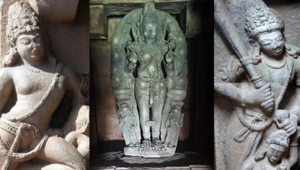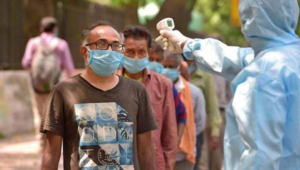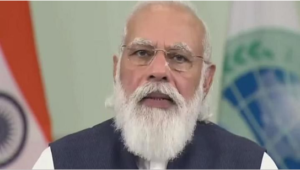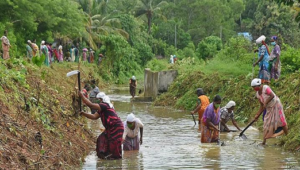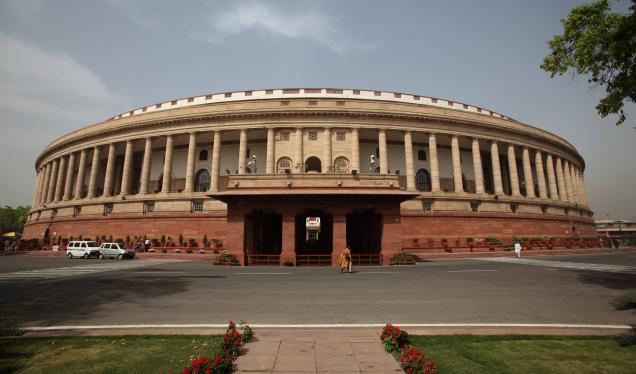
102ND CONSTITUTIONAL AMENDMENT ACT 2017
Background
The government had created a Commission for the Scheduled Castes and Scheduled Tribes via a resolution in 1987. It was given constitutional status by passing Constitution (65th amendment) Act, 1990, leading to creation of National Commission of Scheduled Castes and Scheduled Tribes (NCSCST) in 1992. Via the Constitution (89th Amendment) Act, 2003; the NCSCST was split into two different commissions viz. NCSC and NCST by inserting Article 338-A. NCSC was mandated to look into the grievances and complaints of backward classes also. However, in 1992, the Supreme Court in Indra Sawhney case had directed the government to create a permanent body to entertain, examine and recommend the inclusion and exclusion of various Backward Classes for the purpose of benefits and protection. Towards this, the parliament passed National Commission for Backward Classes Act in 1993 and constituted the National Commission for Backward Classes as a statutory body. Currently, this body is responsible to look into the inclusion and exclusion of backward classes only. To safeguard the interests of these classes more effectively, there was a need to give constitutional status to NCBC.
The Constitution 102 Amendment Act:
- Inserted a new article 338B in the constitution which provides for NCBC, its composition, mandate, functions and various officers.
- Inserted a new article 342-A which empowers the President to notify the list of socially and educationally backward classes of that state / union territory.
- Inserted Clause (26C) under Article 366 with modified definition viz. “socially and educationally backward classes” means such backward classes as are so deemed under Article 342A for the purpose, this Constitution
- Repealed the National Commission for Backward Classes Act 1992 enacted to give effect to the Supreme Court judgement in Indira Sahawey Case. The NCBC, a statutory body created in 1993, was given limited powers – only to recommend to the government inclusion or exclusion of a community in the central list of OBCs. Also, the power to hear complaints of the OBCs and protect their interests remained with the National Commission for Scheduled Castes.
- Effects the role of NCSC: Earlier, under the Constitution the NCSC had the power to look into complaints and welfare measures with regard to Scheduled Castes, backward classes and Anglo-Indians. The Act removes the power of the NCSC to examine matters related to backward classes.
Article 338B:
1) There shall be a Commission for the socially and educationally backward classes to be known as the National Commission for Backward Classes.
(2) Subject to the provisions of any law made in this behalf by Parliament, the Commission shall consist of:
Chairperson,Vice-Chairperson and three other Members
The conditions of service and tenure of office of the Chairperson, Vice-Chairperson and other Members so appointed shall be such as the President may by rule determine.
Appointment: The Chairperson, Vice-Chairperson and other Members of the Commission shall be appointed by the President by warrant under his hand and seal.
(4) The Commission has the power to regulate its own procedure.
(5) It is the duty of the Commission—
(a) To investigate and monitor all matters relating to the safeguards provided for the socially and educationally backward classes under the Constitution or any other law which is in force and to evaluate the working of such safeguards;
(b) To inquire into specific complaints with respect to the deprivation of rights and safeguards of the socially and educationally backward classes;
(c) To participate and advise on the socio-economic development of the socially and educationally backward classes and to evaluate the progress of their development under the Union and any State;
(d) A report is presented either annually or any other time as decided by the commission to present to the President, upon the working of those safeguards;
(e) To make in such reports the recommendations as to the measures that should be taken by the Union or any State for the effective implementation of those safeguards and other measures for the protection, welfare and socio-economic development of the socially and educationally backward classes; and
(f) To discharge such other functions in relation to the protection, welfare and development and advancement of the socially and educationally backward classes as the President may, subject to the provisions of any law made by Parliament, by rule specify.
(6) The President lays all such reports before each House of Parliament or the concerned state legislature along with a memorandum explaining the action taken or proposed to be taken on the recommendations relating to the Union and the reasons for the
Non-acceptance, if any, of any of such recommendations.
(8) The Commission while investigating any matter or inquiring into any complaint referred above has all the powers of a civil court trying a suit and in particular in respect of the following matters, namely:—
(a) Summoning and enforcing the attendance of any person from any part of India and examining him on oath;
(b) Requiring the discovery and production of any document;
(c) Receiving evidence on affidavits;
(d) Requisitioning any public record or copy thereof from any court or office;
(e) Issuing commissions for the examination of witnesses and documents;
(f) Any other matter which the President may, by rule, determine.
(9) The Union and every State Government shall consult the Commission on all major policy matters affecting the socially and educationally backward classes.
Article 342A:-
(1) The President in consultation with concerned state government or union territory government may thereof, by public notification, specify the socially and educationally backward classes which will be deemed to be socially and educationally backward classes in relation to that State or Union territory,
(2) Parliament may by law include in or exclude from the Central List of socially and educationally backward classes specified in a notification issued under above any socially and educationally backward class.






